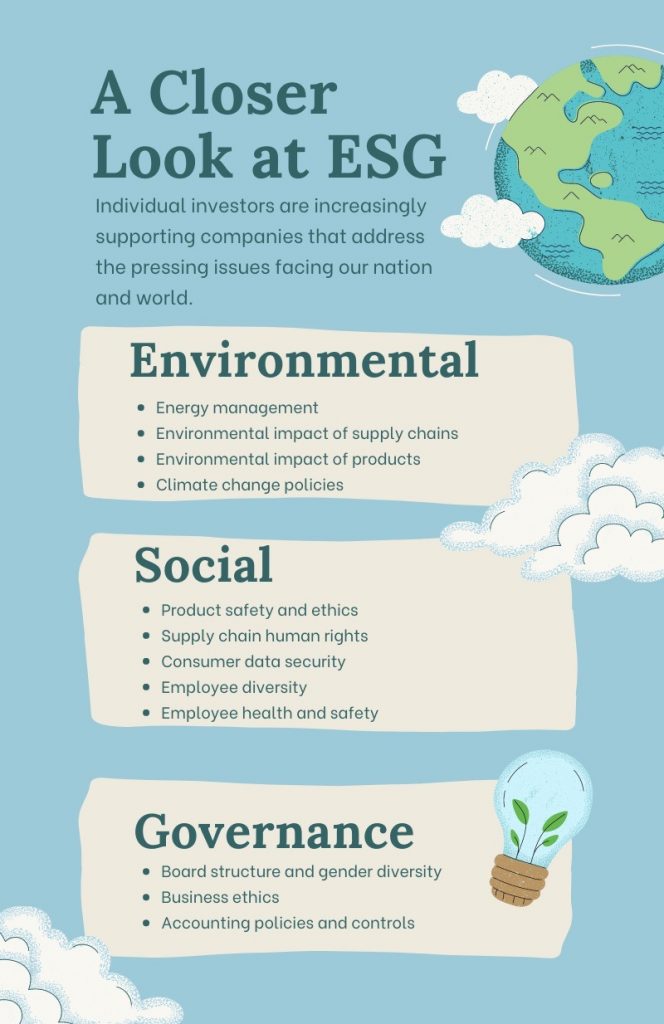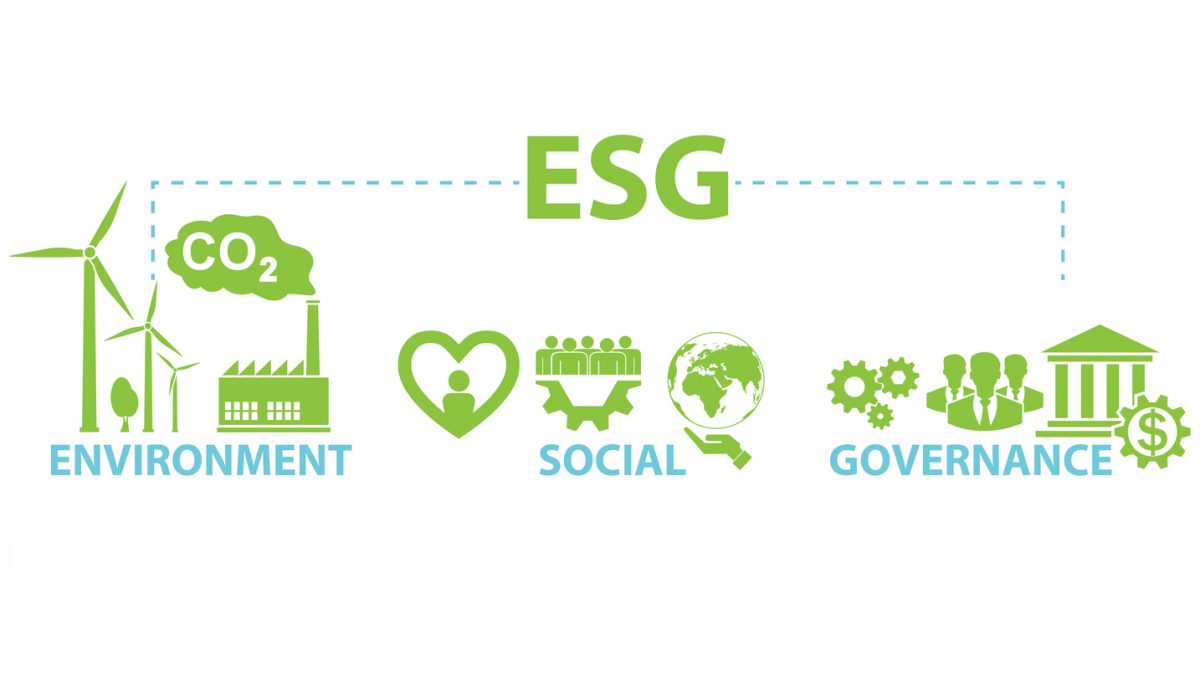
Naming Beneficiaries after the Passing of the Secure Act
June 14, 2021
Congrats, it’s an IPO!
June 14, 2021
More investors are looking to align financial goals with personal values.
You likely already make many decisions based on environmental, social and governance (ESG) principles, from the type of car you drive — or the public transportation you take instead — to the food you eat. Similarly, sustainable investing aims to incorporate ESG values, such as clean energy and fair labor practices, into investment decisions. This not only allows individual investors to support companies that reflect their own values, but also to better manage risk and generate sustainable, long-term results.
There’s a growing realization that sustainable companies can be part of the solution to today’s global challenges. In the face of income inequality, climate change and cybersecurity issues, sustainable investing is gaining momentum. In 2017, 75 percent of individual investors were interested in responsible investing. Just two years later, that number reached 85 percent, according to a survey published in 2019 by the Morgan Stanley Institute for Sustainable Investing. Millennials were even more enthusiastic, with 95 percent of those surveyed responding positively.
That enthusiasm is translating into action. For the first time, assets under management in sustainable funds surpassed $1 trillion as of 2Q 2020, and the total net flows in 2020 was a record $51.1 billion which is more than twice the previous record set in 2019. Companies are taking notice and changing their reporting to better reflect their commitments to sustainability. In 2011, only 20 percent of S&P 500 companies reported on ESG issues, yet this number steadily climbed to 86 percent in 2018, according to the Governance & Accountability Institute.
You may be thinking, “That’s great, but does sustainable investing make sense financially? And, if so, how?” Companies that adequately manage ESG-related risks may lower their cost of capital and improve operational performance, leading to stronger cash flow. ESG analysis also can help to identify more forward-thinking companies that are leaders in their industries, are better at anticipating and managing risk, and meet positive standards of corporate responsibility. Studies have shown that mutual funds using a sustainable investing approach can match or exceed the performance of their peers. Additionally, the MSCI KLD Social Index outperformed the S&P 500 Index from May 1, 1990 to December 31, 2020 based on annualized return. Sustainable investing also performed well during the Covid-19 pandemic, with the MSCI KLD outperforming the S&P 500 in 2020.
When we look at sustainable investing, there are a few frameworks to consider:
- Negative or exclusionary screening avoids investments in companies or industries that you deem unacceptable based on your personal standards. This might mean, for example, no investments in tobacco, fossil fuel or gambling.
- ESG integration factors into investment due diligence and analysis to identify a company’s risks and opportunities.
- Thematic investing focuses on investments in companies or organizations to generate social and environmental impact along with financial gain. You may want to focus, for instance, on companies with gender diversity or that address poverty.
If you’re looking to get involved in sustainable investing, consider the following: What issues or themes are you interested in addressing through your investments? Do you have a geographic area of interest? Which engagement strategies are you interested in exploring? Once you’re ready to invest, you can do so through mutual funds and ETFs, 401(k) or other company retirement plans, community development funds or private equity. At SageMint Wealth, we can tailor an approach that addresses your financial goals while keeping your ESG priorities at the forefront.
When making purchases, many of us will often pay more for an item that was sustainably produced or sold by a company that shares our own values. Yet when it comes to investing, you don’t need to sacrifice financial performance in the name of social responsibility. It’s possible to do well financially while “doing good.”
Related posts
Live Well. Do Good.












